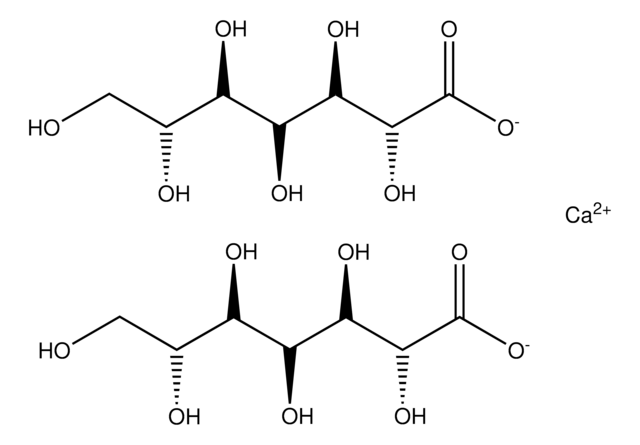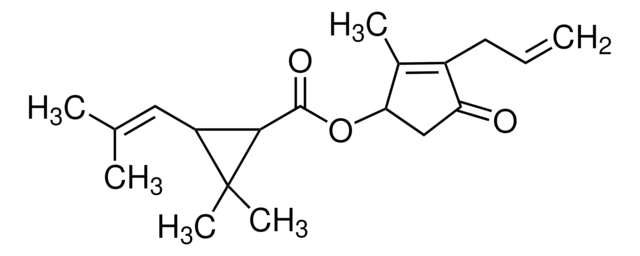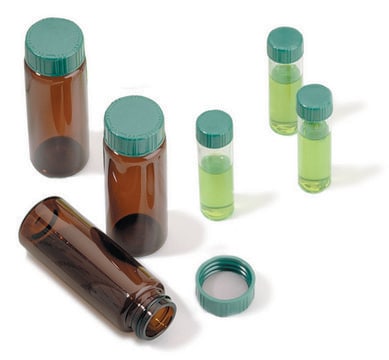790147P
Avanti
16:0-23:2 Diyne PE
1-palmitoyl-2-(10,12-tricosadiynoyl)-sn-glycero-3-phosphoethanolamine, powder
Synonym(s):
PTPE
Sign Into View Organizational & Contract Pricing
All Photos(1)
About This Item
Empirical Formula (Hill Notation):
C44H80NO8P
CAS Number:
Molecular Weight:
782.08
UNSPSC Code:
12352211
NACRES:
NA.25
Recommended Products
assay
>99% (TLC)
form
powder
packaging
pkg of 2 × 100 mg (790147P-200mg)
pkg of 1 × 25 mg (790147P-25mg)
manufacturer/tradename
Avanti Research™ - A Croda Brand 790147P
shipped in
dry ice
storage temp.
−20°C
General description
16:0-23:2 Diyne PE or 1-palmitoyl-2-(10,12-tricosadiynoyl)-sn-glycero-3-phosphoethanolamine is an ultraviolet (UV)-polymerizable phospholipid.
Application
16:0-23:2 Diyne PE or 1-palmitoyl-2-(10,12-tricosadiynoyl)-sn-glycero-3-phosphoethanolamine has been used in the preparation of:
- 2-dimensional phospholipid and copolymer nanomembranes
- planar polymerizable phospholipid membranes for reconstitution of protein ion channels formed by the bacterial toxins
- mixed monolayers at the air-water interface on a Langmuir-Blodgett (LB) trough
Packaging
5 mL Amber Glass Screw Cap Vial (790147P-200mg)
5 mL Amber Glass Screw Cap Vial (790147P-25mg)
Legal Information
Avanti Research is a trademark of Avanti Polar Lipids, LLC
Storage Class
11 - Combustible Solids
Choose from one of the most recent versions:
Certificates of Analysis (COA)
Lot/Batch Number
Sorry, we don't have COAs for this product available online at this time.
If you need assistance, please contact Customer Support.
Already Own This Product?
Find documentation for the products that you have recently purchased in the Document Library.
Susan M Daly et al.
Langmuir : the ACS journal of surfaces and colloids, 22(3), 1215-1222 (2006-01-25)
We formed monolayers and black lipid membranes (BLMs) of photopolymerizable lipids mixed with the channel-forming protein gramicidin A to evaluate their miscibility and the potential for improved stability of the BLM scaffold through polymerization. Analyses of surface pressure vs area
S Punnamaraju et al.
Langmuir : the ACS journal of surfaces and colloids, 28(20), 7657-7664 (2012-05-03)
A combination of nonpolymerizable phospholipids (DPPC or DPhPC) and a smaller amount of cross-linking photopolymerizable phospholipids (23:2 DiynePC) is incorporated in an unsupported artificial lipid bilayer formed using the droplet interface bilayer (DIB) approach. The DIB is formed by contacting
Our team of scientists has experience in all areas of research including Life Science, Material Science, Chemical Synthesis, Chromatography, Analytical and many others.
Contact Technical Service






